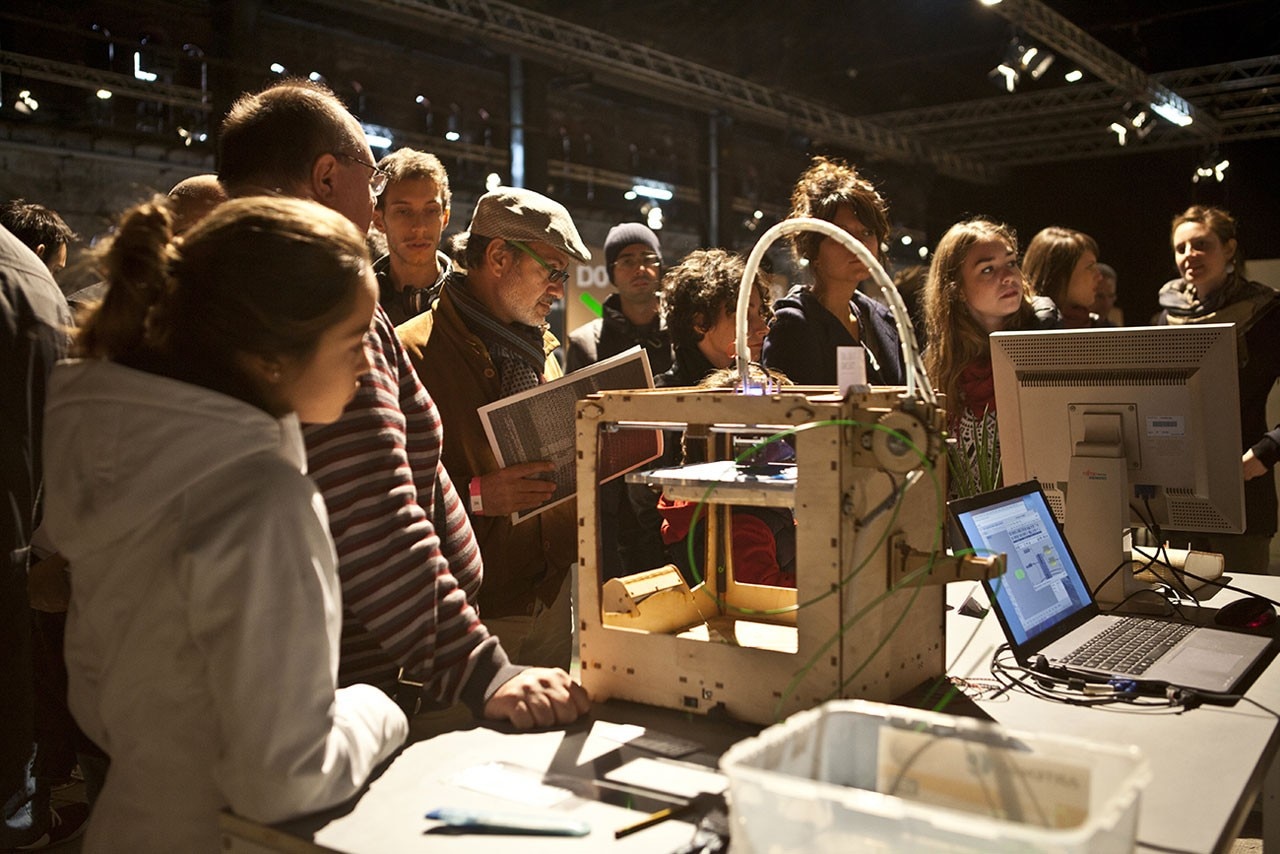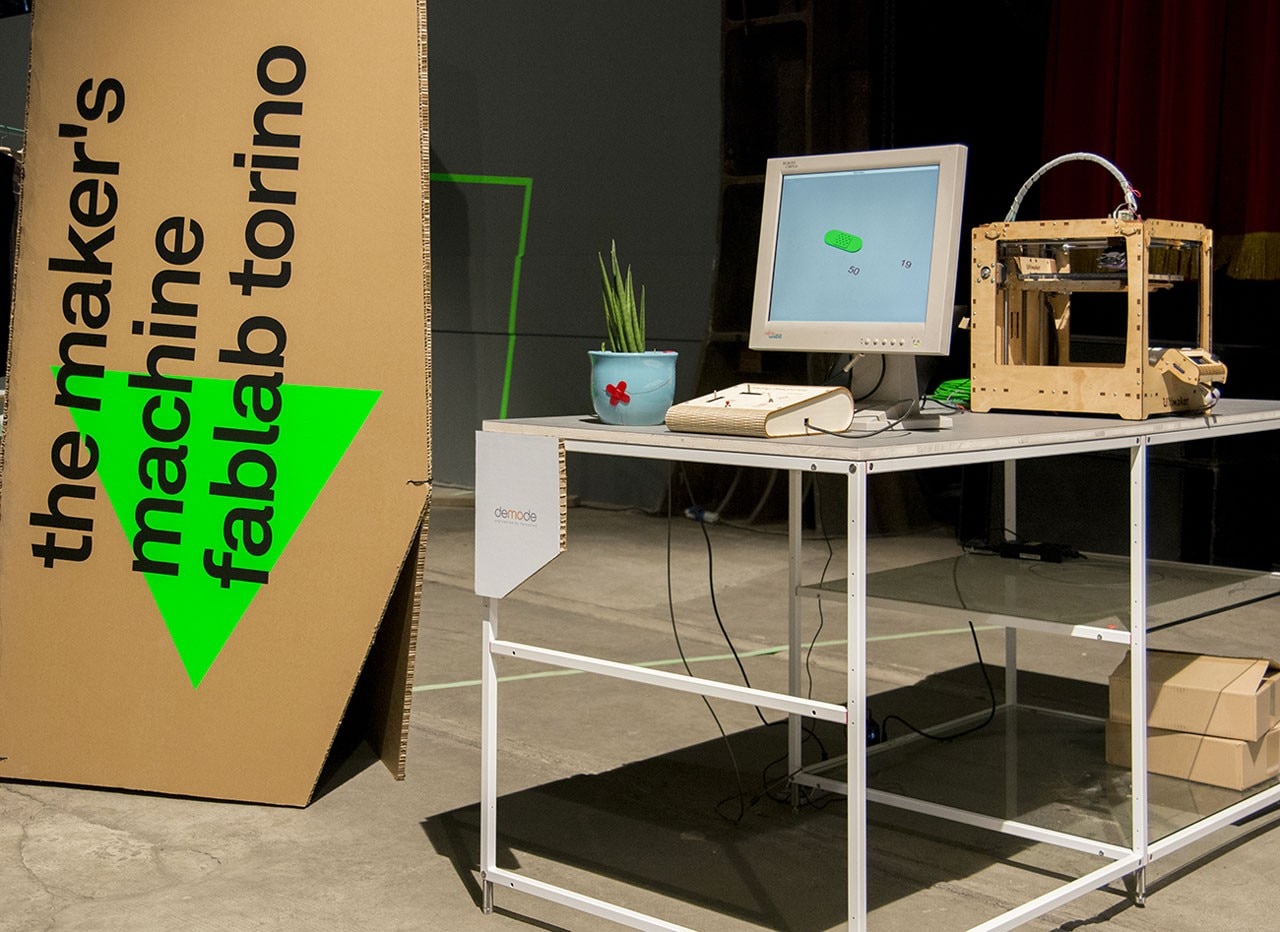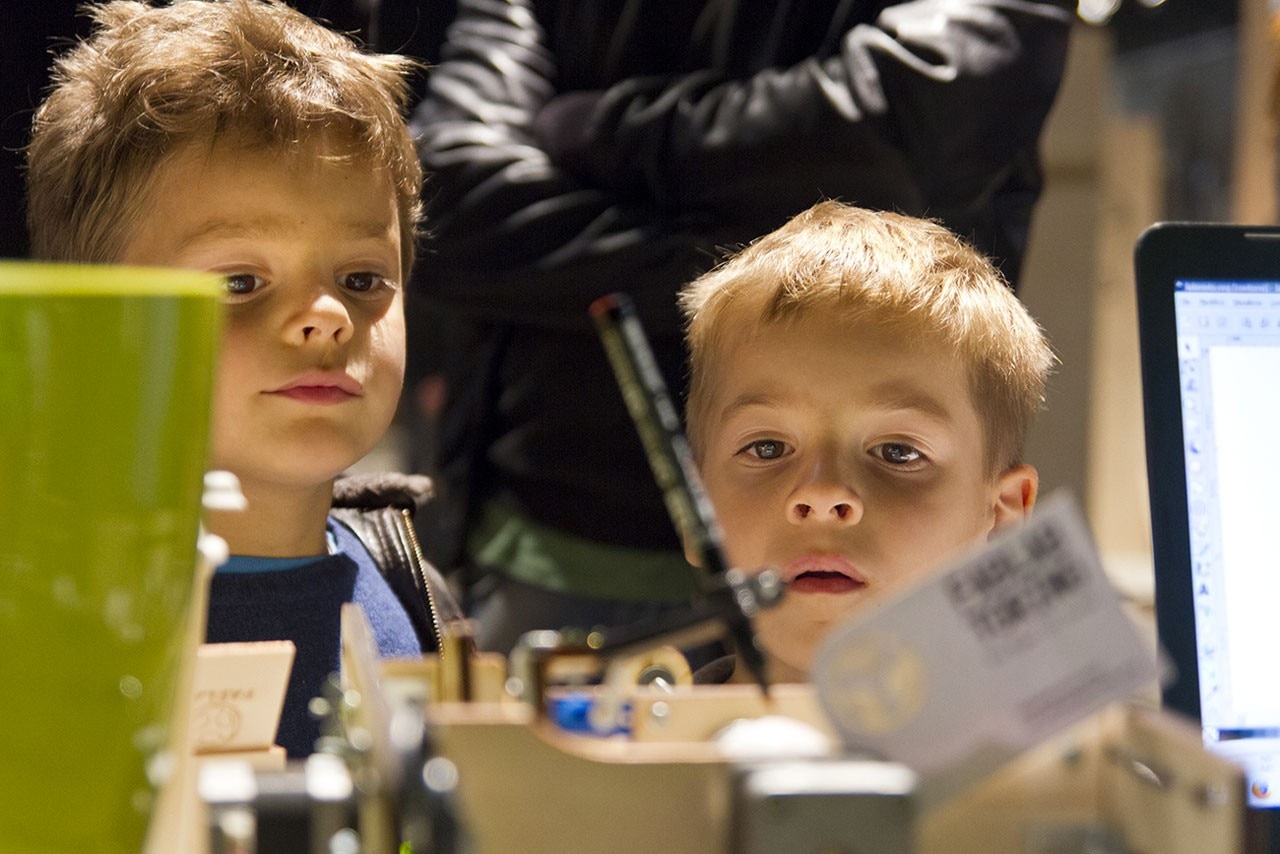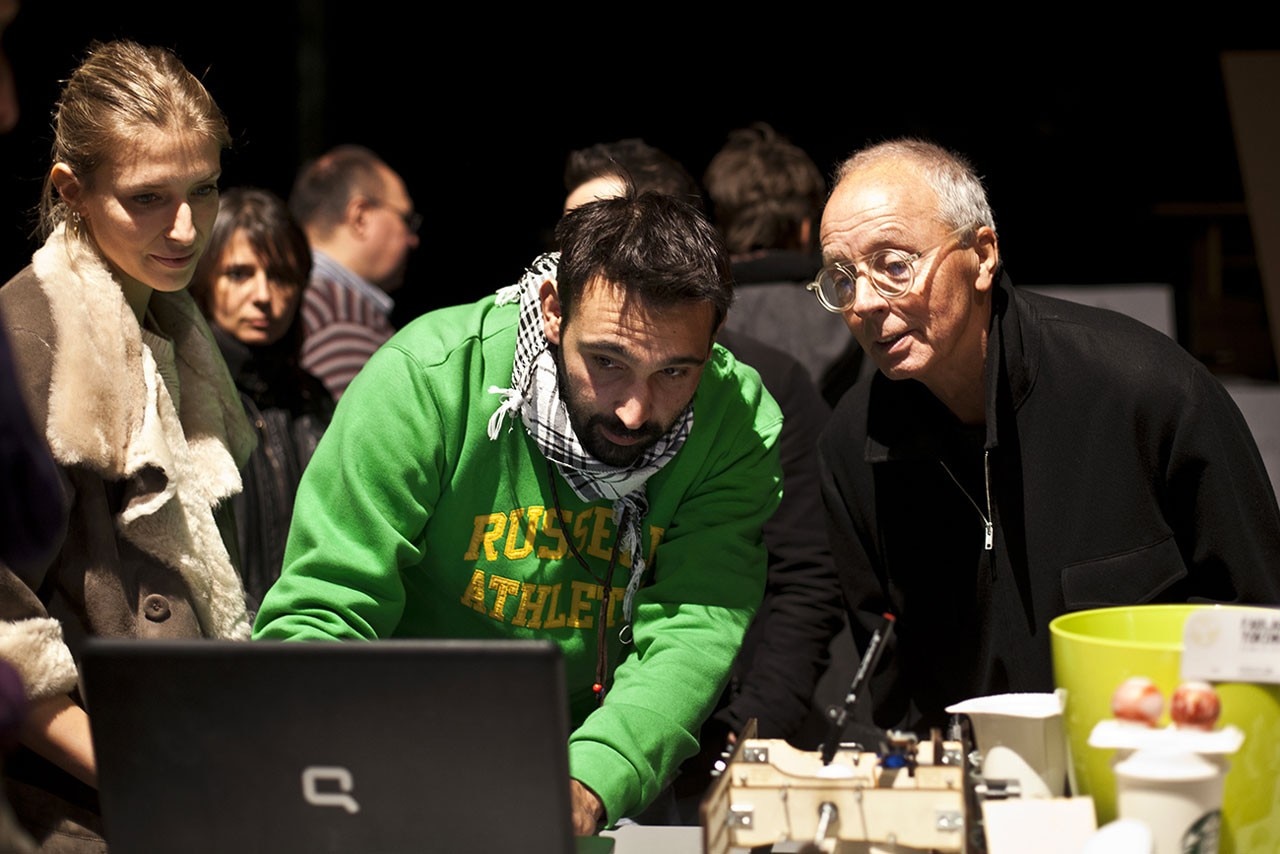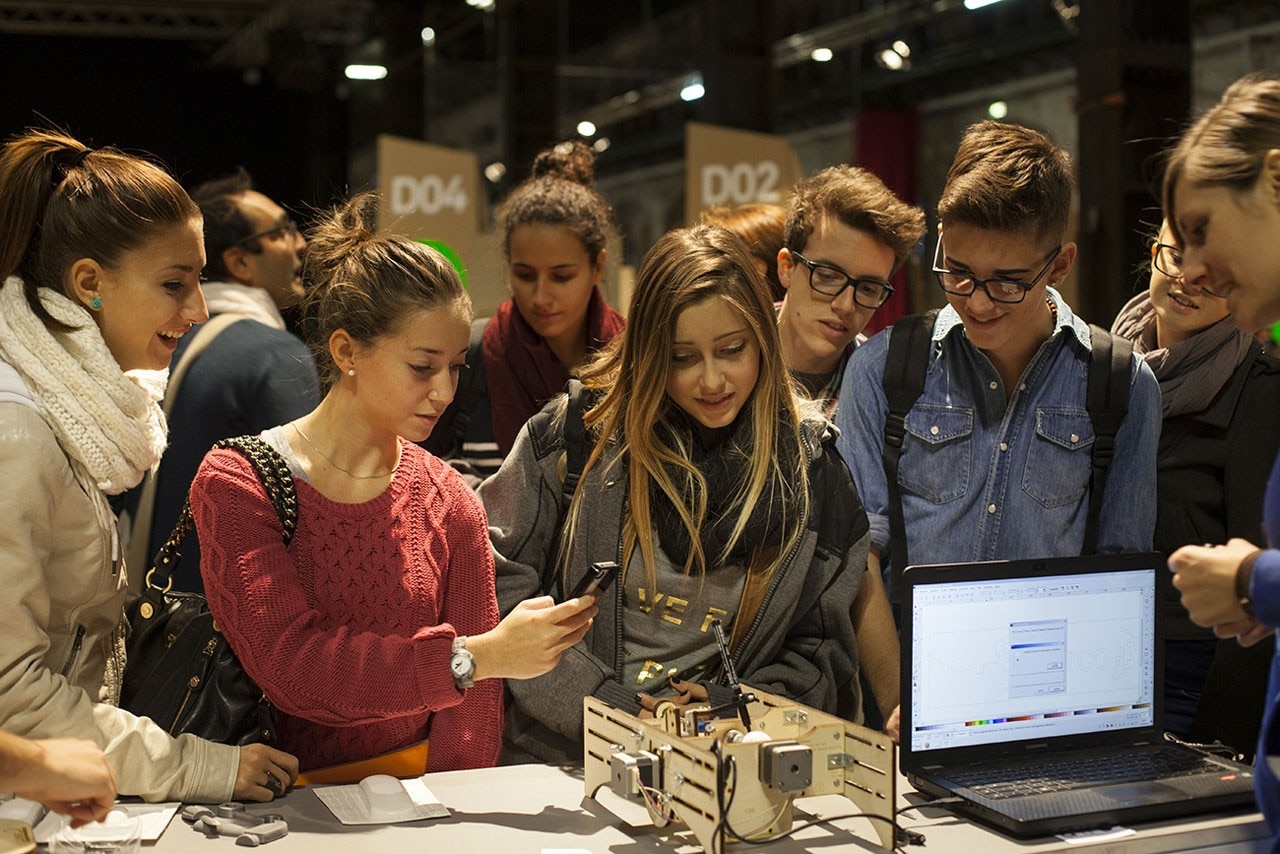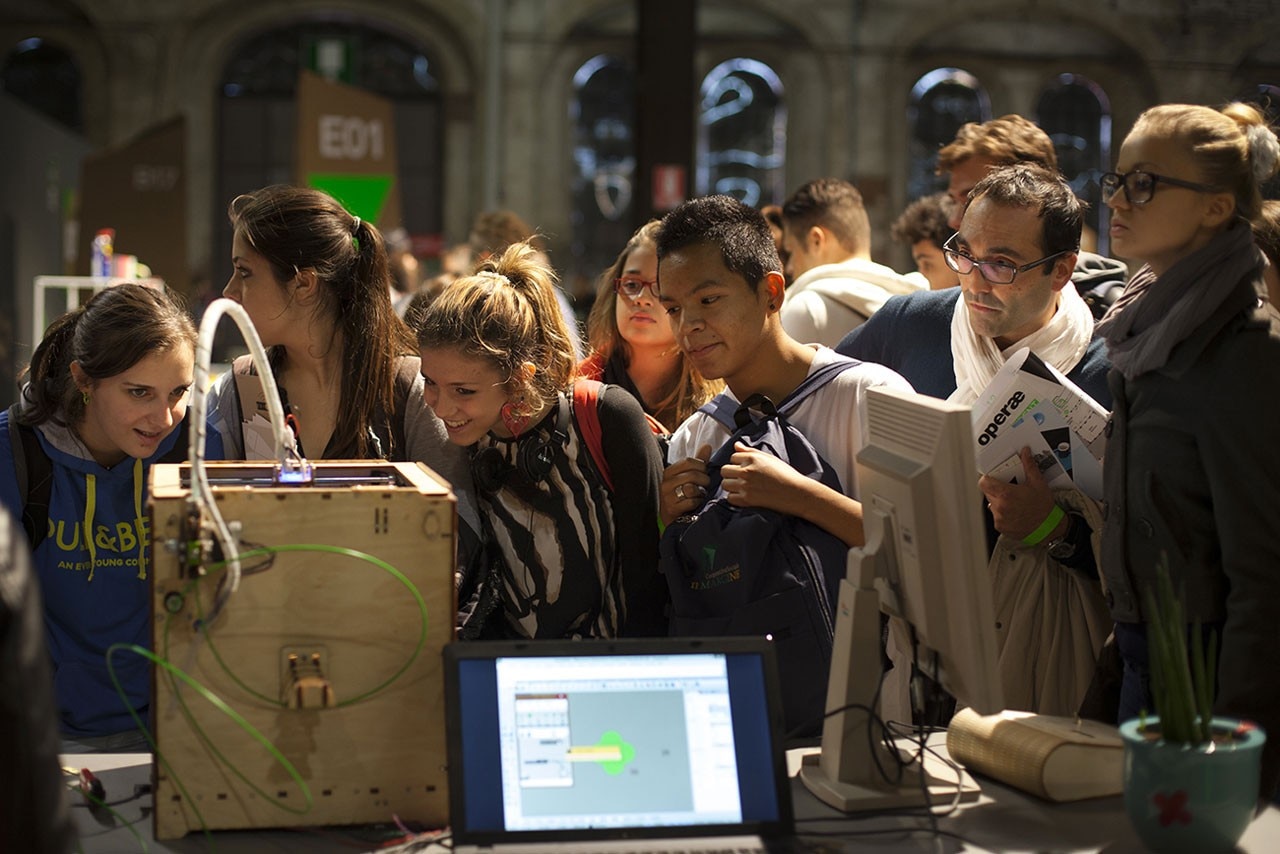
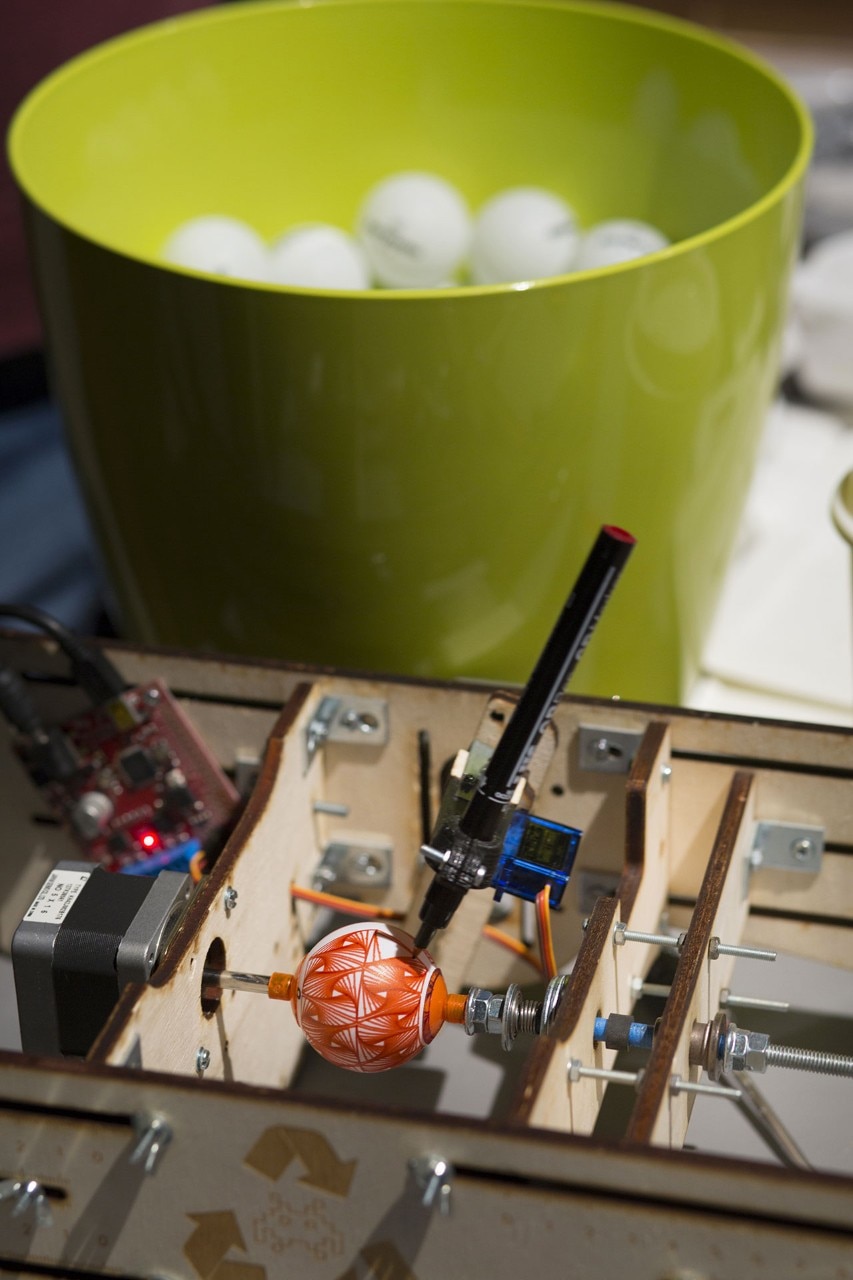
During Operae, Fablab Torino – a workshop where anyone can produce all sorts of things and, if need be, build the machine to make them – rebuilt a creative workshop inside the OGR, transferring in loco numerical control machines and 3D printers so as to conduct experiments and show the public their potential in total freedom.
The result was fascinating: self-production allows us to produce things and establish a direct and more human relationship with them, controlling the manufacturing process, unlike what happens with industrial objects – unalterable and quite impersonal.
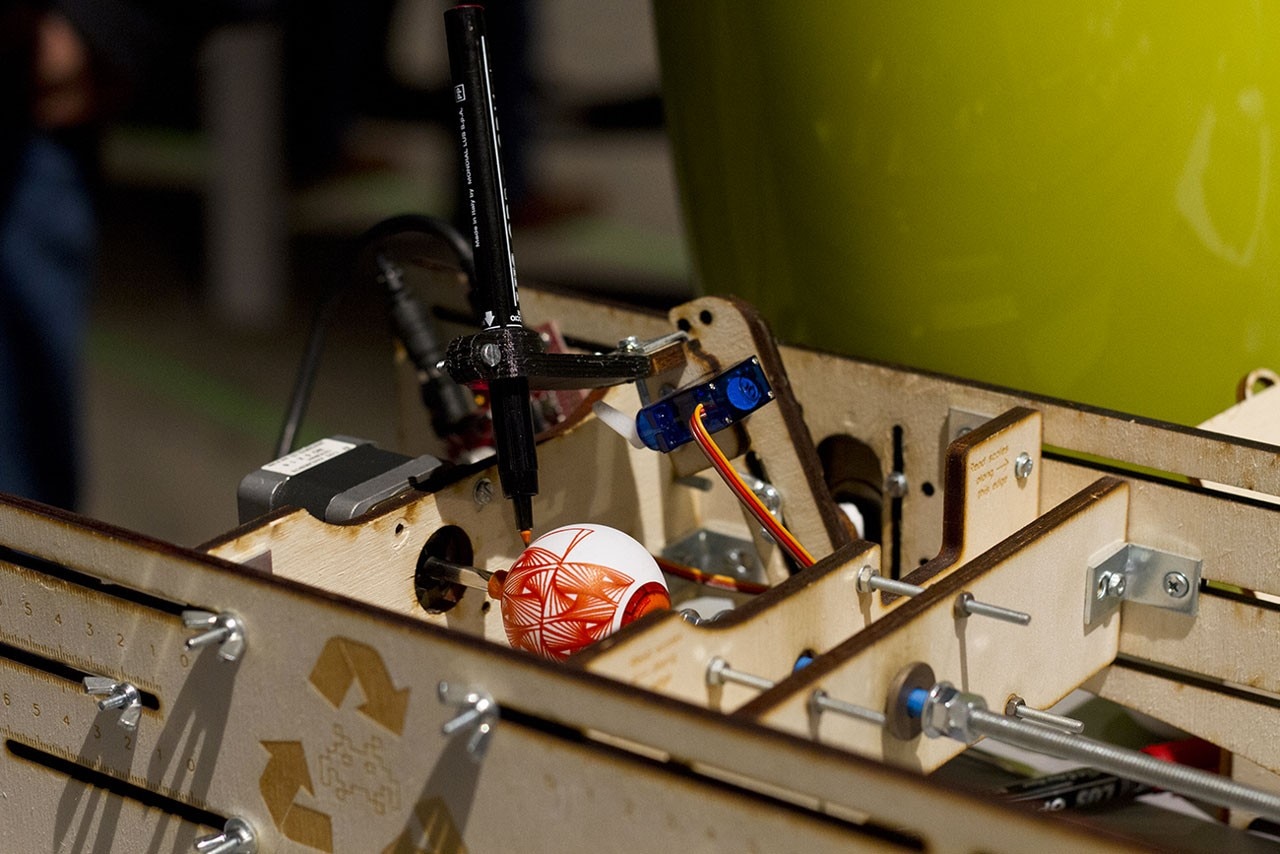
Fablab Torino makers Carlo Bianchi and Michel Baroni explain what lay behind the idea of “creating functional study models in the shortest time possible.” They built a compact, domestic-size thermoformer with laser-cut plywood, simplifying the model of traditional industrial machines, which are costly and cumbersome.
The machine can produce a wide range of objects, from moulds for pastry-making to smartphone covers, from lamps in plastic to prototypes. Indeed, prototyping applications are one of the most practical and innovative uses of the thermoformer. By reducing costs and lead times, it gives designers control over the manufacturing process.
